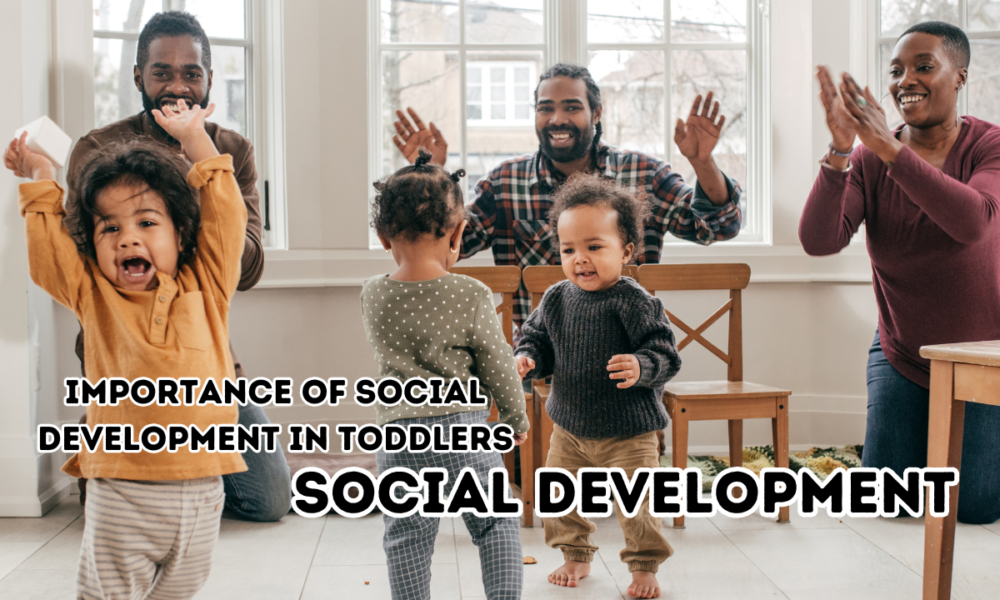Celebrating Toddler Social Development Milestones
The toddler years are a whirlwind of growth and change, especially when it comes to social development. During this period, children begin to interact more with their environment, express emotions, and form relationships. For parents and caregivers, recognizing these milestones can help support a child’s development and address any concerns early on. In this blog, we explore critical social development milestones in toddlers and offer tips on how to nurture these essential skills.
The Importance of Social Development in Toddlers
Building Blocks of Social Skills
During toddlerhood, children learn the foundational skills that will shape their ability to interact with others throughout their lives. These skills include sharing, empathy, communication, and understanding social cues. Developing these abilities early on can set the stage for healthy relationships and emotional well-being.
Parental Role in Social Development
Parents and caregivers play a pivotal role in fostering social skills. By providing a supportive and nurturing environment, they can encourage positive behaviors and help toddlers learn how to manage emotions. Engaging in activities that promote interaction and communication is vital for social growth.
Recognizing Individual Differences
Every child is unique, and social development can vary widely from one toddler to another. It is essential to recognize that some children may reach milestones earlier or later than their peers. Understanding and respecting these individual differences can help create a more supportive environment for growth.
Key Milestones in Toddler Social Development
Making Eye Contact
One of the earliest signs of social development is making eye contact. Around six months, many toddlers begin to make and maintain eye contact with caregivers, signaling their interest in social interactions. Eye contact helps build connections and is a precursor to more complex social behaviors.
Responding to Name
By the time toddlers are 12 months old, they often respond to their name being called. This milestone indicates that the child is becoming more aware of their identity and the social dynamics around them. It’s an essential step in developing communication skills and understanding social interactions.
Engaging in Parallel Play
Between 18 to 24 months, toddlers typically start engaging in parallel play, where they play alongside other children without directly interacting. This stage is crucial for developing social awareness and learning to share space with peers. It’s a foundational step toward more interactive forms of play.
Expressing Affection
Around two years old, toddlers begin to show affection toward family members and familiar people. This can include hugging, kissing, or seeking comfort from loved ones. Expressing affection is a vital part of emotional development and helps build strong, trusting relationships.
Imitating Actions
Imitation is a significant milestone in social development. Toddlers often copy the actions and behaviors of adults and older children around them. This imitation helps them learn new skills and understand social norms. Encouraging positive behaviors can reinforce good habits and social skills.
Developing Empathy
By age three, many toddlers start to show signs of empathy, understanding and sharing the feelings of others. This can manifest as offering comfort to a crying peer or feeling sad when someone else is upset. Developing empathy is crucial for forming meaningful relationships and navigating social situations.
Encouraging Social Development in Toddlers
Interactive Play
Engaging in interactive play with your toddler can significantly boost their social skills. Simple games like peek-a-boo, hide and seek, and building blocks encourage communication, turn-taking, and cooperation. These activities also provide opportunities for bonding and learning through play.
Reading Together
Reading books together is an excellent way to enhance social development. Choose stories that focus on emotions, friendships, and social scenarios. Discussing the characters and their feelings can help toddlers understand different perspectives and develop empathy.
Attending Daycare
Enrolling your child in daycare can offer invaluable social experiences. These settings provide toddlers with opportunities to interact with peers and develop essential social skills within a structured environment. For instance, selecting a daycare near the airport in Salt Lake City can be a convenient choice for working parents while ensuring their child enjoys a rich social environment.
Addressing Challenges in Social Development
Identifying Red Flags
While every child develops at their own pace, certain signs may indicate delays in social development. These can include a lack of eye contact, not responding to their name, or showing little interest in interacting with others. If you notice these red flags, it’s essential to consult a healthcare professional for guidance.
Providing Support
If your toddler is struggling with social development, there are several ways to provide support. Create a structured routine to help them feel secure, and offer plenty of opportunities for social interaction. Encouraging positive behavior through praise and reinforcement can also be beneficial.
Seeking Professional Help
In some cases, additional support from professionals such as speech therapists, occupational therapists, or child psychologists may be necessary. These experts can provide targeted interventions to help your child develop social skills and address any underlying issues.
Conclusion
Understanding and supporting your toddler’s social development is vital for their overall growth and well-being. By recognizing key milestones, engaging in activities that promote social skills, and addressing any challenges early on, you can help your child thrive. Remember, every child is unique, and their development may vary. Celebrate their progress and provide a nurturing environment to support their social growth.







